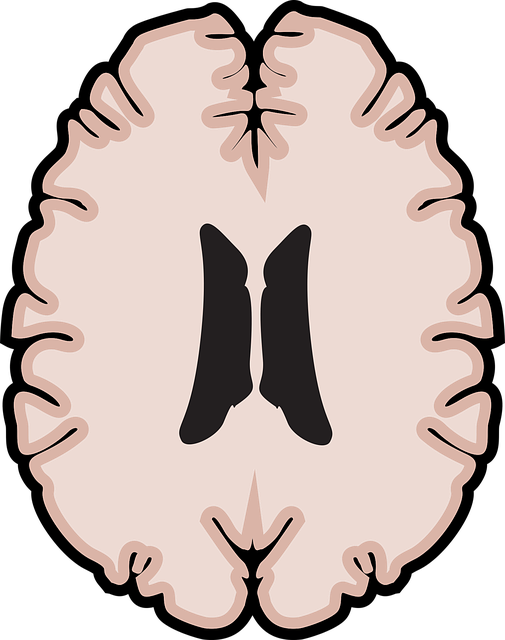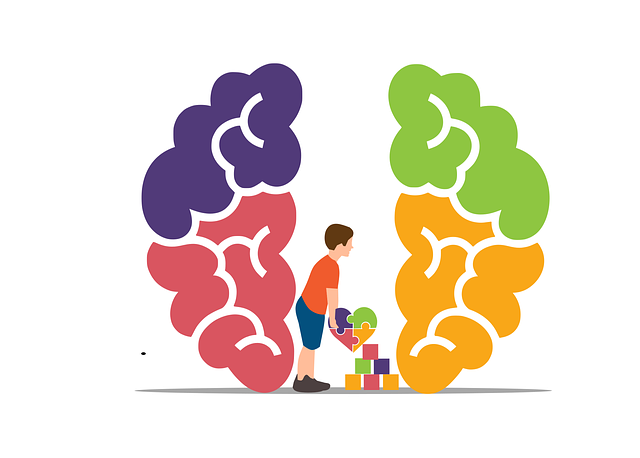Lone Tree Play Therapy is a unique therapeutic approach that leverages play to enhance Emotional Intelligence (EI) in children and adults. By creating safe, culturally sensitive spaces, therapists facilitate emotional expression, improve self-awareness, and develop empathy through interactive play sessions. This method, inspired by healthcare burnout prevention, promotes better conflict resolution, reduces anxiety, and fosters compassionate communities while addressing mental illness stigma. Through mindfulness meditation and self-care routines, clients cultivate resilience and adaptability, empowering them to navigate life's challenges with grace and compassion, ultimately enriching their well-being and relationships.
Emotional intelligence (EQ) is a vital skill set that enables individuals to navigate relationships and challenges effectively. This article explores the power of building emotional intelligence, delving into its profound benefits and practical applications. We discuss how play therapy, specifically at Lone Tree Play Therapy, can significantly enhance EQ in children and adults. Additionally, we provide actionable strategies for cultivating self-awareness and empathy, integrating these essential skills into everyday life.
- Understanding Emotional Intelligence and Its Benefits
- The Role of Play Therapy in Enhancing EQ
- Strategies for Developing Self-Awareness and Empathy
- Integrating Emotional Intelligence into Daily Life
Understanding Emotional Intelligence and Its Benefits

Emotional intelligence (EI) is a powerful tool that enables individuals to navigate life’s complex landscape with grace and empathy. It involves recognizing, understanding, and managing one’s own emotions while also recognizing, interpreting, and influencing the emotions of those around them. This skill set goes beyond mere emotional awareness; it encompasses effective communication, strong interpersonal relationships, and the ability to handle challenging situations with resilience.
Developing EI can profoundly impact various aspects of life. In the context of Lone Tree Play Therapy, for instance, it helps therapists create safe, nurturing environments where children can express their feelings through play. This approach not only aids in understanding a child’s emotional state but also fosters healthy coping mechanisms and enhances overall mental wellness. Beyond therapy settings, EI boosts conflict resolution techniques, enabling individuals to address disagreements constructively. Moreover, it contributes to anxiety relief by promoting self-awareness and the ability to manage stress, making it an invaluable asset for maintaining balanced mental health, as highlighted in our Mental Wellness Podcast Series Production.
The Role of Play Therapy in Enhancing EQ

Play therapy offers a unique and powerful approach to enhancing emotional intelligence (EQ), particularly in children but also in adults. Lone Tree Play Therapy, for instance, leverages the natural tendency of play as a means to facilitate communication, express emotions, and develop empathy—all core components of EQ. Through imaginative play, clients can explore their feelings, practice social skills, and learn to manage their emotional responses in safe, controlled environments. This therapeutic method is especially beneficial for individuals who struggle with self-awareness, emotional regulation, or interpersonal relationships.
Incorporating cultural sensitivity in mental healthcare practice is integral to the success of play therapy. Therapists must create inclusive spaces that respect diverse backgrounds and experiences, ensuring that play activities resonate with each client’s unique culture. Moreover, risk assessment for mental health professionals plays a crucial role in tailoring play therapy sessions to meet individual needs while mitigating potential risks. By addressing the Mental Illness Stigma Reduction Efforts, play therapists can foster an environment where clients feel comfortable exploring their emotions without fear of judgment, thereby enhancing not just EQ but also overall well-being.
Strategies for Developing Self-Awareness and Empathy

Developing self-awareness and empathy is a cornerstone of emotional intelligence growth. Lone Tree Play Therapy offers unique strategies for cultivating these essential skills. Through interactive play sessions, individuals can explore their emotions, thoughts, and behaviors in a safe and supportive environment. This introspective process facilitates a deeper understanding of one’s triggers, strengths, and vulnerabilities, thereby enhancing self-awareness.
Empathy, on the other hand, is nurtured by practicing active listening and perspective-taking. By engaging in Self-Awareness Exercises, individuals can learn to recognize their own emotional reactions and subsequently extend that capacity to understand and share the feelings of others. This approach, inspired by Burnout Prevention Strategies for Healthcare Providers, not only fosters stronger interpersonal connections but also plays a crucial role in Mental Illness Stigma Reduction Efforts, creating more compassionate communities.
Integrating Emotional Intelligence into Daily Life

Integrating emotional intelligence into daily life is a transformative journey that begins with self-awareness and extends to meaningful connections with others. At Lone Tree Play Therapy, we believe that cultivating emotional intelligence (EI) is akin to tending to a garden—it requires nurturing, attention, and consistent care. Through therapeutic practices like mindfulness meditation, individuals can learn to recognize their emotions, understand their triggers, and respond thoughtfully rather than reacting impulsively. This heightened self-awareness is the foundation for building stronger relationships, whether at home or in the workplace.
By incorporating self-care routine development for better mental health into daily rituals, people can foster resilience and adaptability—essential components of emotional intelligence. Trauma support services also play a significant role in helping individuals process and heal from past experiences that may hinder their ability to connect with others and manage their emotions effectively. By integrating mindfulness meditation and other EI-boosting strategies, Lone Tree Play Therapy aims to empower individuals to navigate life’s challenges with grace and compassion, both for themselves and for those around them.
Emotional intelligence is a powerful tool that can transform both personal and professional lives. By understanding its benefits, incorporating play therapy like Lone Tree Play Therapy, cultivating self-awareness and empathy, and seamlessly integrating these practices into daily routines, individuals can enhance their emotional resilience and connect more deeply with others. This journey towards higher emotional intelligence is accessible to all, offering a path to richer relationships and greater fulfillment.











